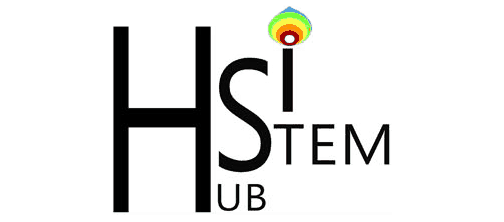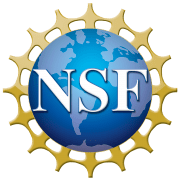The Hub is excited to host you as a participant for Adelante! Review the agenda below for information on the conference. Visit the conference home page to find submission guidelines, the participant code of conduct, release, and more!
Conference Presentations
Keynotes
Topic 1: Fostering a culture of innovation, entrepreneurship, and interdisciplinary collaboration in the HSIs ecosystem
Dr. Erika Camacho, Professor, UTSA
Topic 2: Building Institutional Capacity for STEM at Under Resourced HSIs
Dr. Derrick Brazill, Provost, CUNY-York
Topic 3: Intersectionality and STEM: Impact on HSI Faculty and Student Experiences
Dr. Carmen Domingo, Dean, SFSU
Lightning Talks
Topic 1: HSI Missions and Institutional Cultures
Group 1
- ¡Adelante! Lessons learned from Year 1 of the PUI-SATX-Louis Stokes Alliance for Minority Participation | Veronica Martinez Acosta, University of the Incarnate Word, San Antonio, Texas
- Year 1 of the PUI-SATX-Louis Stokes Alliance for Minority Participation has taught us valuable lessons about barriers faced by our student populations who are all underrepresented in STEM. As an alliance of the four predominantly undergraduate institutions in San Antonio, TX we foster diversity and inclusivity in STEM through support for both students and their families for the first two years of their baccalaureate degree. Our commitment is to ensure that everyone has an equal opportunity to succeed in their chosen major.
- Juan Sánchez-Méndez, University of Puerto Rico, Bayamón, Puerto Rico
- All of Us Evenings with Genetics Research Program | Debra Murray, Baylor College of Medicine, Houston, Texas
- Leveraging S-STEM Scholarships, Mentoring, and Study-Skills Training to Support Low-Income Undergraduates at an HSI | Taffeta Elliott, New Mexico Institute of Mining and Technology, Socorro, New Mexico
- Study skills based on cognitive psychology help students in STEM majors at an HSI just as elsewhere. Scholarships to Pell-eligible students who came in with strong H.S. grades did not significantly improve college GPA in the first semester.
- Podcast & Writing Intensive: Elevating Education through New Media and Dynamic Writing | Mateo Sancho Cardiel, Borough of Manhattan Community College, New York, New York
- Podcasting seamlessly merges public speaking and formal writing into a meticulously scripted format, aligned with the scientific method. This dynamic method not only boosts student engagement but also creates easily shareable and portable projects.
- BRAINS: Broadening the Representation of Academic Investigators in NeuroScience | Sheri Mizumori, Professor, University of Washington, Seattle Washington
- BRAINS is a national professional development program that seeks to accelerate and improve the career advancement of neuroscience postdoctoral researchers and assistant professors from underrepresented groups. Participants gain a stronger sense of career self efficacy and community through symposia/webinars, ongoing professional development activities, peer coaching circles, and a robust network.
Topic 2: Building Institutional Capacity for STEM at Under Resourced HSIs
Group 2
- Bring Your Whole Self and Unlock Student Science Identity | Heidy Contreras, California State University, San Bernardino, California
- Increasing student engagement using culturally-relevant science classroom activities | Lissette Delgado-Cruzata, John Jay College, New York, New York
- Faculty-created culturally affirming materials and activities can promote students engaged, reflect the diversity of our classrooms and empower students in the STEM classroom.
- Bridging the Gap | Mohammad Azhar, Borough of Manhattan Community College, New York, New York
- A dynamic curriculum implementation framework for CURE faculty | Sarah Corey-Rivas, New Mexico Highlands University, Las Vegas, New Mexico
- We will share a framework for engaging faculty and supporting their implementation of research projects in introductory level science courses informed by four years of programming.
- If You Build It, Will They Come? | Tammy Castro, Bloomfield College of Montclair State University, Bloomfield, New Jersey
- Practical advice on designing and implementing a peer coaching and tutoring program for undergraduate students.
Topic 3: Intersectionality and STEM: Impact on HSI Faculty and Student Experiences
Group 3
- Peer leadership in the classroom | Eliza Morris, California State University, Sacramento, California
- Students currently enrolled in class help others as in classroom peer leaders. This hierarchical system allows for high intensity active learning in large classrooms.
- Interest Groups as a system of support for Student Success | Donna Stokes, University of Houston, Houston, Texas
- Pioneering Undergraduate-led research at the University of Puerto Rico Mayaguez, a longstanding Hispanic-Serving Institution | Alex Veglia, University of Puerto Rico, Mayagüez, Puerto Rico
- University of Washington’s Data Science for Social Good Program | Sarah Stone, eScience Institute, University of Washington, Seattle, Washington
- Launched in 2015, the UW’s Data Science for Social Good (DSSG) summer research and education program partners Student Fellows with Data Scientists from the eScience Institute and Project Leads from academia, government, and the private sector to find data-intensive solutions to pressing societal challenges. To date we have supported 29 projects and over 100 Student Fellows. To ensure Student Fellows have baseline capability in data science tools and techniques, technical tutorials are offered throughout the DSSG program. In addition, keystones of the DSSG program include project-based discussions and training around data science ethics, human-centered design and stakeholder analysis, and partner collaboration.
- Creating An Ecosystem of STEM Student Success | Amee Mehta, Seminole State College, Sanford, Florida
- Seminole State College of Florida is committed to transforming its STEM ecosystem and supporting academically talented, diverse college students pursuing biology-related degrees. Through initiatives such as the STEM certificate program, NSF S-STEM scholarship program, Title III grant, and Undergraduate STEM Research class, the college has created a guided pathway that empowers students and fosters their success in STEM education.
- Teaching Engineering Students to Self-Transform: Parallelisms between Product Innovation and Student Career Path Planning | Noe Vargas Hernandez, UTRGV, Edinburg, Texas
Posters
- Summer Bridge Programs: A Foundation for Student Success | Donna Stokes, University of Houston, Houston, Texas
- Institutional Capacity for Grantsmanship | Christine Velez & Lauren Gant, The Evaluation Center & Dr. Monica Torres, Dona Ana Community College, University of Colorado Denver, Denver, Colorado
- Overview of Institutional Capacity Survey that was developed for the HSI STEM Resource Hub.
- National Science Foundation HSI STEM Resource Hub: Outcomes & Impact Evaluation, 2019-2023 | Christine Velez, University of Colorado Denver, Denver, Colorado
- Highlights from HSI Hub Evaluation Findings
- All of Us Evenings with Genetics Research Program | Debra Murray, Baylor College of Medicine, Houston, Texas
- Sparking Curiosity in Quantum Science (SparCQS)- Community Integrative STEM Engagement! | Gabriel Montano, Northern Arizona University, Flagstaff, Arizona
- Sparking Curiosity in Quantum Sciences (SparCQS) is a STEM outreach experience that introduces foundations of quantum science to students, parents and communities. SparCQS meets communities “where they are” and makes quantum science accessible, welcoming and fun. Through scientist and educator derived hands-on activities and curricula, and a diverse and reflective team, SparCS focuses on establishing foundational skills for future STEM education and career pathways.
- A Tool to Assess Diversity, Inclusion and Equity in STEM: the STEM DEI Syllabi Rubric | Lissette Delgado-Cruzata, John Jay College, New York, New York
- UPR Mayaguez: A Premier HSI in the Caribbean | Alondra Diaz Lameiro, University of Puerto Rico at Mayaguez, Mayaguez, Puerto Rico
- Increasing Student Success in STEM | Agda Cordero, Universidad del Sagrado Corazón, San Juan, Puerto Rico
- This project aims to increase the number and percentage of students who remain in STEM majors, complete STEM degrees, and secure STEM employment. It focuses on peer mentoring, peer math tutoring, research and internships, career counseling, industry mentoring, and faculty development leading to key gateway math course revisions.
- Engaging and Empowering STEM Students to be Successful in Introductory Chemistry Courses at a Hispanic Serving Institution | Betzaida Castillo, University of Puerto Rico-Humacao, Humacao, Puerto Rico
- General Chemistry (GC), Calculus, and Physics have gained notoriety as “gatekeeper courses”, contributing to diminished STEM retention and graduation rates. The challenges students face in GC often arise from inadequate high school STEM preparation, a particular concern in Puerto Rico given its economic decline, impactful hurricanes, earthquakes, and exacerbated by the COVID pandemic. Moreover, traditional classroom pedagogies hinder academic performance and serve as deterrents for those considering STEM majors. In response, GC faculty have embraced a research-supported “flipped classroom” strategy. Unfortunately, there are few studies assessing the effectiveness of the “flipping” approach with Latinx students. To address this literature gap, the researchers conducted a study comparing traditional, technology-assisted, and “flipping” pedagogical models.
- SomosSTEM Early Student Engagement Through an Integrated Science Pathway | Sarah Corey-Rivas, New Mexico Highlands University, Las Vegas, New Mexico
- Amplifying the voices of those who are underrepresented in STEM at predominantly undergraduate institutions: Year 1 of the PUI-SATX-Louis Stokes Alliance for Minority Participation | Veronica Martinez Acosta, University of the Incarnate Word, San Antonio, Texas
- Year 1 of the PUI-SATX-Louis Stokes Alliance for Minority Participation has taught us valuable lessons about barriers faced by our student populations who are all underrepresented in STEM. As an alliance of the four predominantly undergraduate institutions in San Antonio, TX we foster diversity and inclusivity in STEM through support for both students and their families for the first two years of their baccalaureate degree. Our commitment is to ensure that everyone has an equal opportunity to succeed in their chosen major.
- Field Experiences at a Two-Year College: A Comparison of Three Types | Jennifer Snyder, San Diego Mesa College, San Diego, California
- This poster describes three different types of field experiences that were attempted at our 2-Year College. This poster will compare and contract the success of each.
- Finding the STEM-CURE: Integrating Research into the 2-year HSI STEM curriculum | Robin Cotter, Phoenix College, Phoenix, Arizona
- CUREs are a high-impact practice shown to improve student engagement and retention in STEM fields. CUREs have traditionally been offered at 4-year institutions where they often target STEM majors in upper-level courses. Although 2-year institutions educate almost half of all undergraduates, student access to research opportunities can be limited. CUREs provide a way to increase student access to research and its benefits. Yet, limited data has been collected on the implementation of CUREs at 2-year institutions, and in particular, 2-year Hispanic Serving Institutions (HSIs). To address this gap, we developed CUREs for community college students that focused on community-based issues and industry-related challenges.
- The Neuroscience Gateway: enabling software dissemination and large scale modeling and data processing | Kenneth Yoshimoto, University of California San Diego, San Diego, California
- Puerto Rican Students Rising in STEM: Findings from a Multi-campus Collaborative CURE Program to Promote Student Success | Merlis Alvarez-Berrios, Inter American University of Puerto Rico, Ponce Campus, Ponce, Puerto Rico
Updated on: 3/19/24

